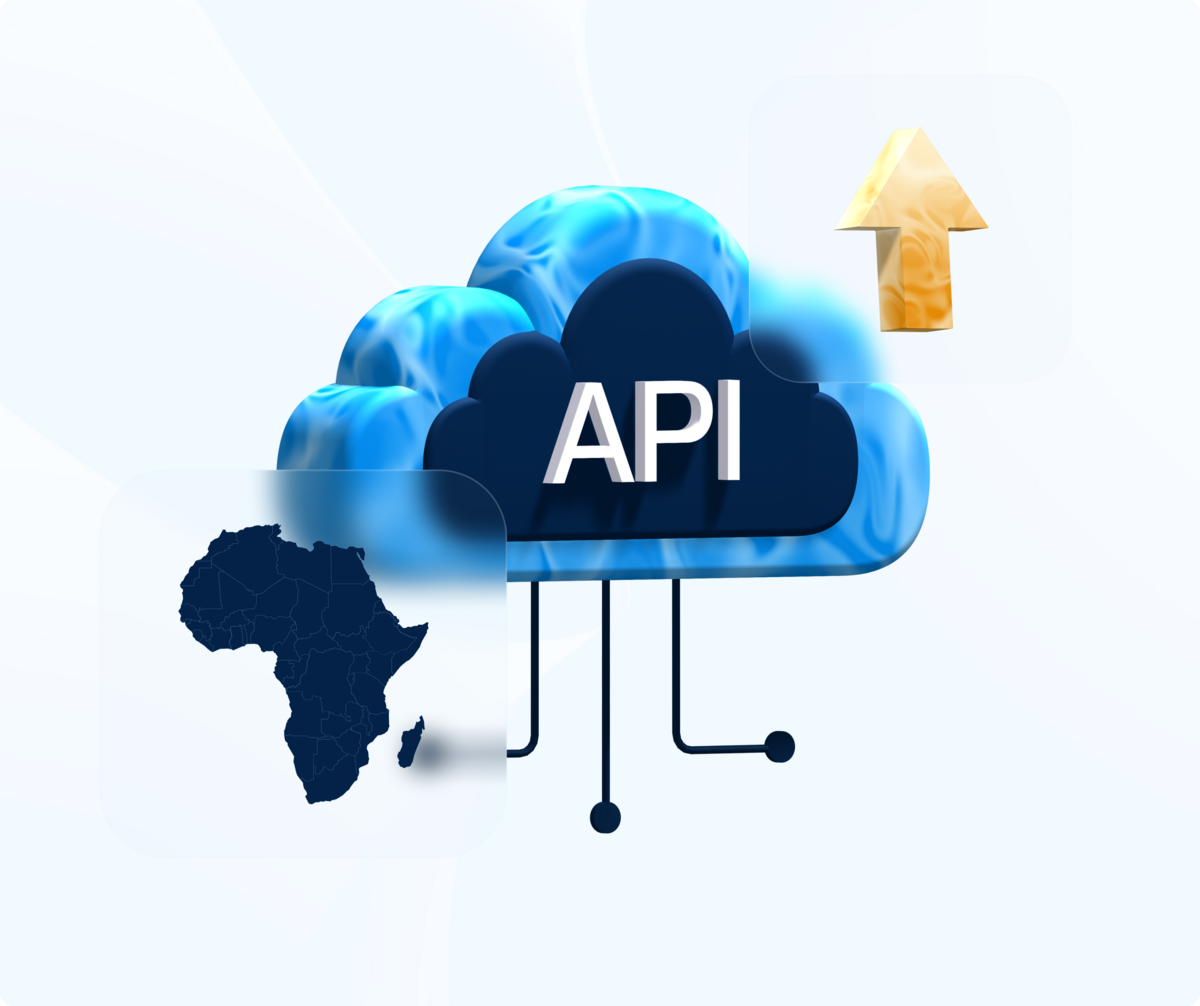Embedded finance is reshaping how African businesses handle payments and other financial services by letting non-financial companies integrate these services directly into their platforms. But behind this shift is the power of APIs (Application Programming Interfaces), which make it easier for businesses to tap into financial systems without having to build complex infrastructure themselves.
This article explores how APIs are driving the growth of embedded finance and what this means for African businesses.
How APIs Make Embedded Finance Easier
APIs simplify the integration of financial services into business platforms. Traditionally, offering services like payment gateways or lending options required companies to either partner with banks or build custom solutions from scratch, which was costly and time-consuming.
APIs allow businesses to:
Quickly connect to financial systems: Businesses can plug into ready-made banking infrastructure without building their own systems.
Reduce development time and cost: Since APIs are pre-built, companies don’t need to invest in large technical teams or development projects.
Simplify payment processes: APIs enable fast, reliable, and secure payment transactions directly through business platforms, cutting down on delays and errors.
Easily scale services: With API integration, businesses can add more financial services as they grow without needing major system upgrades.
Access New Opportunities for Businesses with APIs
APIs don’t just make the integration process simpler—they open new avenues for growth by allowing companies to offer financial services directly to their customers. Here’s a look at the key opportunities that APIs provide:
1. Offering Credit and Lending Services
Businesses can use fintech lending APIs to provide credit lines or installment payment options. For example, an e-commerce platform might offer "buy now, pay later" (BNPL) options to its customers, encouraging larger purchases and increasing sales.
2. Simplifying Invoicing and Payments
APIs can automate the creation of invoices and handle payments through integrated systems, speeding up cash flow. This is especially useful for logistics companies or suppliers, where payment delays can slow down business operations.
3. Enabling Supply Chain Financing
By integrating supply chain financing tools through APIs, businesses can offer credit and advance payments to suppliers, allowing them to get paid faster and improve their liquidity. This is particularly important for small businesses that struggle to access traditional financing.
4. Creating Financial Ecosystems
APIs enable businesses to create their own mini-financial ecosystems. A business could offer multiple services—such as payments, lending, and even insurance—all through its platform, providing a complete financial solution for its customers.
These opportunities not only help businesses improve their own efficiency but also provide additional value to customers, driving loyalty and growth.
How API Banking is Changing B2B Payments in Africa
API banking is a critical piece of the embedded finance puzzle, allowing businesses to offer bank-like services without becoming banks themselves. By using APIs provided by traditional banks or fintechs, companies can integrate financial services into their platforms in a secure and scalable way.
Here are some of the ways API banking is transforming B2B payments:
1. Offering Banking Services Through Non-Financial Platforms
Businesses can integrate services like account creation, money transfers, and payment processing directly into their platforms. This means a business can act as a bridge between its customers and financial services, without the customer needing to leave the platform.
2. Reducing Cross-Border Payment Friction
Cross-border payments are a challenge in many African markets, but APIs enable businesses to offer quick and affordable transfers across countries. This is especially important in regions where traditional banking infrastructure is weak or expensive.
3. Filling the Gap in Underserved Markets
In many parts of Africa, banks are not accessible to everyone. Through API banking, fintechs can provide financial services to underserved areas by partnering with existing banks, extending their reach to previously unreachable customers.
4. Reconciliation and Reporting
B2B companies can use APIs to automatically reconcile transactions and generate financial reports. This makes it easier to keep track of payments and cash flow without manual intervention, saving time and reducing errors.
These changes are allowing African businesses to streamline their payment processes, reduce costs, and offer better services to their customers.
Challenges to API-Driven Embedded Finance in Africa
While APIs are simplifying the adoption of embedded finance, they also come with their own set of challenges. For businesses in Africa, these hurdles need to be addressed for APIs to reach their full potential. Here are some key challenges:
1. Lack of Standardized APIs Across African Markets
One major issue is that API standards can vary widely across different African countries. This creates difficulties for businesses that operate in multiple regions, as they may need to work with different sets of APIs for each market. A lack of harmonization can slow down the growth of embedded finance, particularly for businesses that are trying to scale across borders.
2. Data Security and Privacy Concerns
With financial data being shared across multiple platforms through APIs, data security becomes a significant concern. Ensuring that APIs are secure and that sensitive information is protected is crucial, especially in countries where regulations around data protection are still evolving. Businesses need to invest in robust security measures to prevent breaches and build trust with their customers.
3. Regulatory Uncertainty
In many African countries, regulations around fintech and embedded finance are still developing. This can create uncertainty for businesses that are unsure about compliance requirements. Regulatory changes can also create challenges for businesses that have already integrated APIs, as they may need to update or change their systems to stay compliant.
4. Limited Technical Expertise
Not all businesses in Africa have the technical expertise needed to fully take advantage of API integration. Smaller businesses, in particular, may struggle to find the developers or resources needed to implement these systems. This lack of technical capacity can slow down the adoption of APIs, especially for companies that don't have the budget to hire dedicated technical teams.
Despite these challenges, the potential benefits of API-driven embedded finance far outweigh the risks, and as fintech ecosystems mature, many of these hurdles will likely diminish.
The Future of Embedded Finance in Africa
As APIs continue to grow in importance, they will play a key role in the future of embedded finance in Africa. Here are some predictions for how this trend might evolve:
1. More Comprehensive Financial Services Ecosystems
In the future, businesses may not only integrate payments but also offer a range of financial services, including insurance, investments, and credit, all through a single platform. APIs will make it easier for businesses to expand the scope of services they offer.
2. Wider Adoption of API Standards
To address the current fragmentation in API standards across African countries, industry bodies and regulators may push for more harmonized API protocols. This would make it easier for businesses to operate across borders and create a more connected financial ecosystem.
3. Increased Collaboration Between Fintechs and Traditional Banks
As API banking continues to grow, the relationship between traditional banks and fintechs will become even more collaborative. Banks can provide the financial infrastructure, while fintechs focus on creating innovative customer experiences and building platforms that leverage API technology.
4. Greater Focus on Security and Compliance
As regulations tighten, there will be an increased emphasis on ensuring that APIs are secure and that businesses are compliant with data protection laws. This will push API providers to offer more robust security features and improve transparency around how customer data is used.
Move your business forward with Miden
APIs are at the heart of the embedded finance revolution in Africa, making it easier for businesses to adopt and integrate financial services into their platforms. While challenges around standardization, security, and technical expertise still exist, the benefits of API-driven solutions—faster payments, new revenue streams, and broader access to financial services—are clear.
As African fintech ecosystems mature and businesses become more comfortable with API technology, we can expect to see even greater adoption of embedded finance. In the long run, APIs will not only change how businesses manage payments but also how they offer a full range of financial services to their customers.




